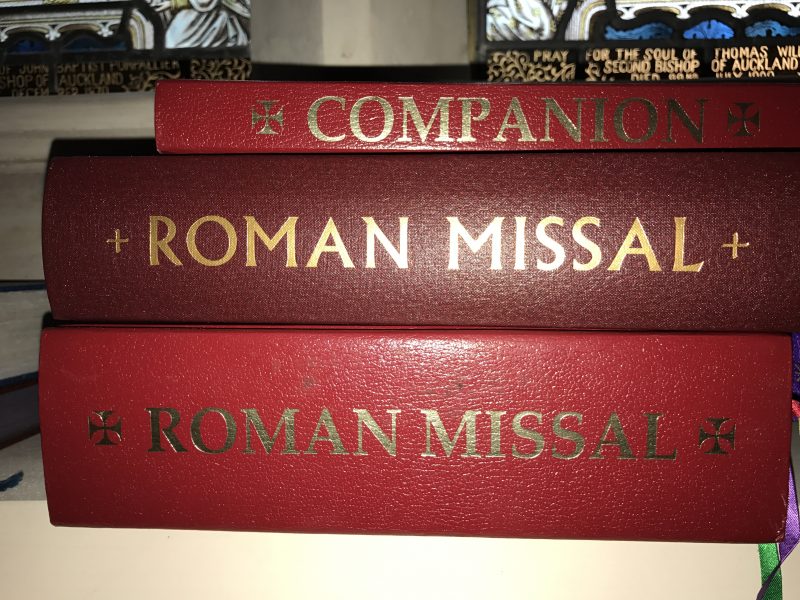More than a year after Pope Francis issued his Motu Propio on liturgical translations, Magnum Principium, the fight over the “translation wars” seemed to have lost steam as bishops’ conferences face bigger challenges.
“The general mood is that they are very happy to translate more freely. We are breaking up long Latin sentences and doing it with great joy, but no one wants to go back and re-translate the Missal,” said Auckland Bishop Patrick Dunn, president of the New Zealand Catholic Bishops Conference and representative to the International Commission on English Liturgy (ICEL).
Bishop Dunn said that dealing with sexual abuse scandals in their own dioceses is taking up much of the energies of bishops’ conferences like Australia, US, Canada and the UK.
ICEL is comprised of 11 English-speaking bishops’ conferences and 15 associate-members.
The so-called “translation wars” had been going on for some years with theologians and liturgical scholars accusing – albeit privately – the Congregation for Divine Worship and the Discipline of the Sacraments (CDW) of stealing this work from the bishops’ conferences.
In the 1970’s, ICEL started translating the Roman Missal into the vernacular, sending each stage of the translation to all 11 conferences, until an approved translation was sent to Rome in 1998.
The Prefect of the CDW at the time, Cardinal Medina Estevez, rejected the 1998 Missal translation. Liturgiam Authenticam, issued by the CDW in 2001, insisted on an exact translation from the original Latin texts.
The CDW demanded changes to ICEL which resulted in new statutes handed down by the congregation to the group in 2003 as well as a new “formal sounding” translation in 2010 based on prescriptions of Liturgiam Authenticam.
At present, ICEL members are not interested in going through the entire process again.
Bishop Dunn said while Magnum Principium has put control of the liturgy back to the bishops’ conferences as intended by Vatican II, it [Magnum Principium ] has left the bishops as well as CDW uncertain about their respective roles.
Bishop Dunn said “that even if the local bishops’ conferences do a translation, they still have to submit it to the congregation in Rome for confirmation or recognition of the text”.
“This to make sure the translation doesn’t have theological flaws in it and [to] preserve the unity of the Roman Rite across all languages.”
But the steps by which CDW gives recognition to the text are still unclear, Bishop Dunn said.
Even on the issue of ICEL’s statutes which have expired, the CDW and the bishops’ conferences are carefully trying to find the line that separates each one’s authority.
ICEL was originally formed as an instrument of the English-speaking bishops conferences, but with Liturgiam Authenticam, it became an instrument of CDW.
“The congregation have now advised ICEL that ICEL should once again draft their own statutes. In this sense, they have become far more flexible,” Bishop Dunn said.
Canadian Bishop Brian Dunn [no relation to Bishop Patrick], a canon lawyer, is currently writing the draft of ICEL’s new constitution.
2010 vs 1998
Bishop Dunn said most of the New Zealand bishops are still keen on going back to the 1998 Missal, but he is personally having second thoughts on that.
“I’ve been to ICEL and I see the value of working together. I’m a bit more reserved about simply going back to the 1998 Missal,” he said.
“I think my preference now is to look at 2010 in the light of Magnum Principium,” he said, pointing out that after 8 to 10 years, the people have become used to the “slightly more formal language”.
“The priests may not like the new Missal, but I think the people are less concerned about it,” he said.
Bishop Dunn speculated that when the CDW plenary council meeting is called in February, the congregation may want to discuss the implications of Magnum Principium.
He added that Wellington Cardinal John Dew, who was appointed to the congregation in 2016, will be attending the meeting in February.

Please don’t give up the fight for a more prayable liturgy
Especially the Eucharistic Prayers and the Opening Prayer, Prayer after Communion and Closing prayer. The way it is now I can’t even get a sense of the prayer because of jarring terminology or convoluted sentences or merely the priest stumbling through the words. From what I saw you had it right with the 1998 edition perhaps rather than re do the whole this a temporary measure would be to marry 1998 with parts of 2010. The people’s responses are okay but the prayers need urgent attention